DOJ's recusal effort in the Portland case worked. Now a Trump appointee will hear it.
Also: In response to widespread DOJ requests for stays in civil litigation due to the shutdown, some plaintiffs are pushing back — and some judges are saying no.
On Thursday, the Justice Department successfully sought to replace the judge who had been assigned to hear Oregon’s challenge to President Donald Trump’s military deployment into the city.
The case, filed on Sunday, September 28, was assigned that day to U.S. District Judge Michael Simon, an Obama appointee.
On Monday, September 29, a scheduling conference was held. At that conference — where the docket notes that DOJ lawyers “Christopher D. Edelman and Jean Lin [were] present as counsel for Defendants” — Simon set oral argument on a temporary restraining order request for 10 a.m. Friday.
Edelman and Lin made formal appearances in the case, along with another DOJ lawyer, Benjamin Kurland, on Tuesday, September 30.
Wednesday, October 1 passed with little of note happening in the case.
It was only on Thursday that DOJ filed a “Suggestion of Recusal,” asking Simon to recuse himself from the case.
The reason: His wife is a member of Congress from Oregon. Rep. Suzanne Bonamici, a Democratic member of the House, has — understandably — opposed Trump’s efforts to send the military into Portland.
What of it?
The filing was signed by Jean Lin, a longtime DOJ lawyer who has stayed at DOJ and defended many of the administration’s discriminatory actions — including efforts to take away medication for transgender people in prison and to kick transgender people out of the military.
But, on Thursday, Lin was very concerned about fairness and the public interest.
The effort worked. Although Simon made clear that DOJ’s timing was suspect and that he had no obligation to do so, he nonetheless stated that, “because it is necessary that the focus of this lawsuit remain on the critically important constitutional and statutory issues presented by the parties, the undersigned U.S. District Judge hereby recuses himself.”
The case will now be heard by U.S. District Judge Karin Immergut1, a Trump appointee, and she is set to hear arguments at 10 a.m. Friday over Trump’s decision to send troops into Portland.
DOJ encounters pushback to its shutdown stay requests
The Justice Department has sought stays in most civil litigation in light of the shutdown — “in light of a lapse of appropriations” — as per its contingency plan. Criminal cases, as well as immigration cases proceed through the Justice Department, are to continue without interruption, under the plan.
While some of the civil case stay requests have been filed unopposed — in some instances where injunctions blocking administration actions are already in place, for example — the Justice Department is getting pushback in other cases where a stay would mean justice delayed or worse.
For example, D.C. Attorney General Brian Schwalb’s office opposed a DOJ stay request in the case over the continued military presence in D.C. On Thursday, U.S. District Judge Jia Cobb, a Biden appointee, denied the stay request, keeping things on track for an October 24 hearing.
In Rhode Island, U.S. District Judge John McConnell, an Obama appointee, similarly denied a DOJ request in a multistate challenge over the Trump administration’s efforts to shutter or dramatically downsize several agencies before the challengers could even file a response. “The Court is required to continue its constitutional functions, and therefore the Motion to Stay is DENIED,” he wrote, noting that DOJ’s contingency plan stated that a stay denial “would constitute express legal authorization for the activity to continue.“
In the ongoing challenge to Homeland Security Sec. Kristi Noem’s effort to end Temporary Protected Status for more than a half-million Venezuelans, DOJ filed a motion for a stay at the U.S. Court of Appeals for the Ninth Circuit on Wednesday.
The opposition filed by the plaintiffs portrayed the request as one illuminating what they argue is a fundamental problem with Noem’s attack on TPS:
They cited the same portion of DOJ’s contingency plan noted by McConnell as a reason why “this Court need not accept that absurd position.” Additionally, they argued, “Beyond this, Defendants cannot rely on the shutdown to obtain a stay of litigation challenging the legality of their actions while simultaneously continuing to spend the money to implement them.“
DOJ replied that “[a]ppellees will not be prejudiced by a stay because this Court denied the government’s motion for a stay of the district court’s judgment pending appeal, providing them TPS protection during the pendency of this appeal.“ In other words, “Because we’re blocked for now, you should let us put the case on hold.”
[Update, 3:20 p.m. October 3: DOJ had previously sought a stay of the district court’s ruling pending appeal at the U.S. Supreme Court, which remains pending. On Friday, plaintiffs filed a notice in that application, highlighting the DOJ reply at the Ninth Circuit and noting, “Defendants did not mention the instant stay application before this Court.”]
The Ninth Circuit — which had ruled on August 29 against the administration on an earlier appeal in the case — said no and denied the stay request on Thursday, making clear it wants to move ahead quickly with this second-run appeal.
Although many of the Justice Department’s lawyers are “excepted” from the shutdown furlough’s under the contingency plan, the stay denials — of which these are just three — across a wide range of civil litigation where the department is defending Trump administration actions will doubtless be a further strain on an already stretched-short office.
Immergut played a small but infamous part in Kenneth Starr’s investigation into Bill Clinton. As a lawyer who joined the team for the summer of 1998, Immergut deposed Monica Lewinsky in August of that year. Two decades later, she ultimately faced little opposition as a judicial nominee, as she had been a respected judge in Oregon and had the support of both home-state — Democratic — senators. She was confirmed on a voice vote, although then-Sen. Kamala Harris and Sen. Mazie Hirono voted against her in the Senate Judiciary Committee.



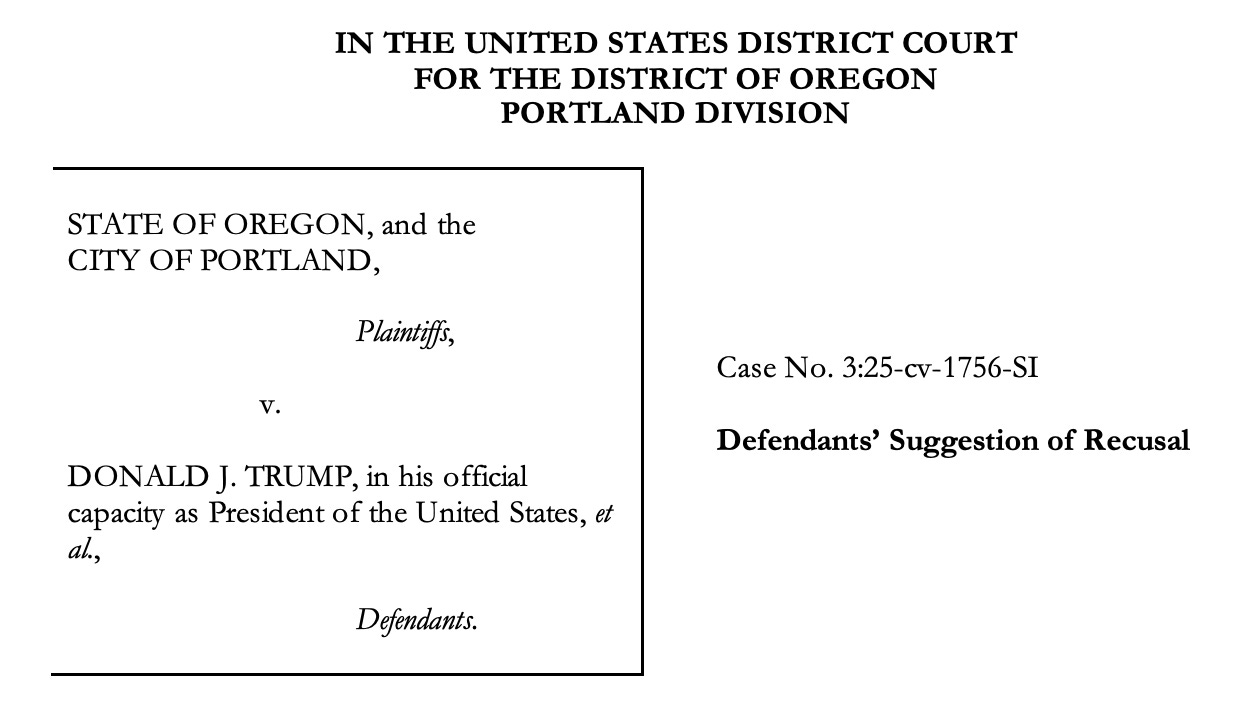
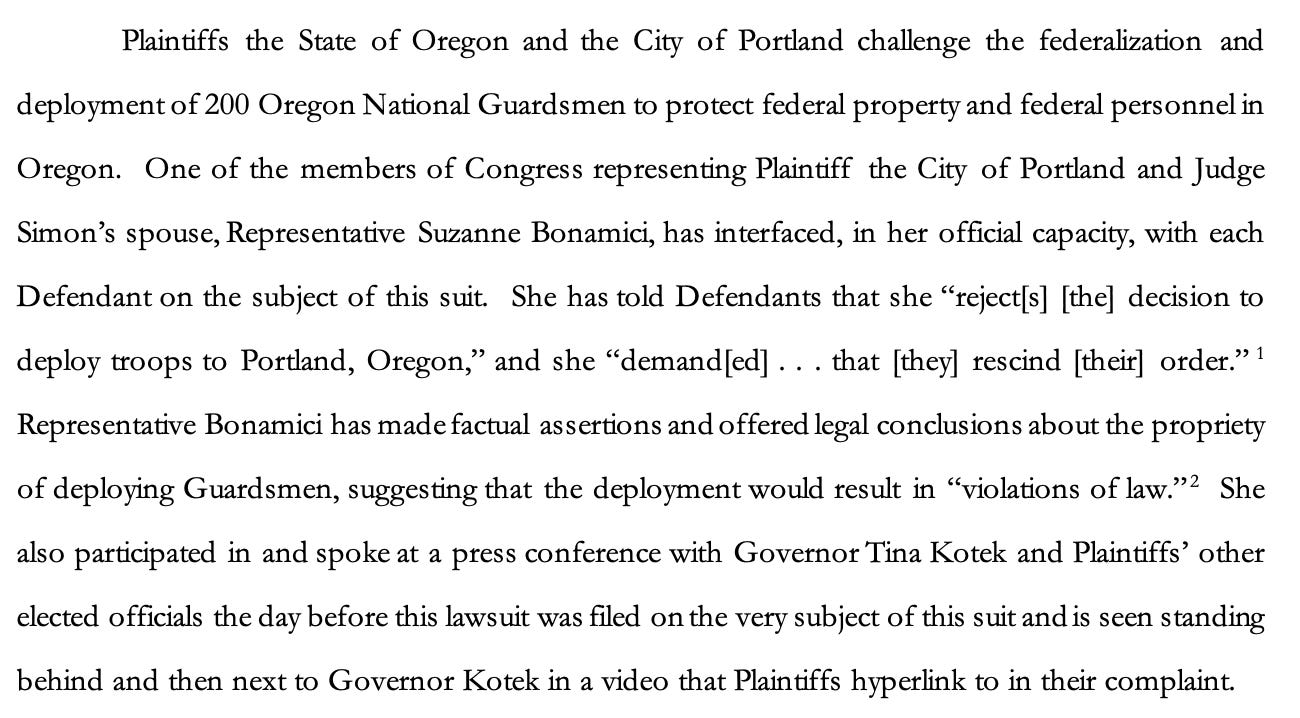

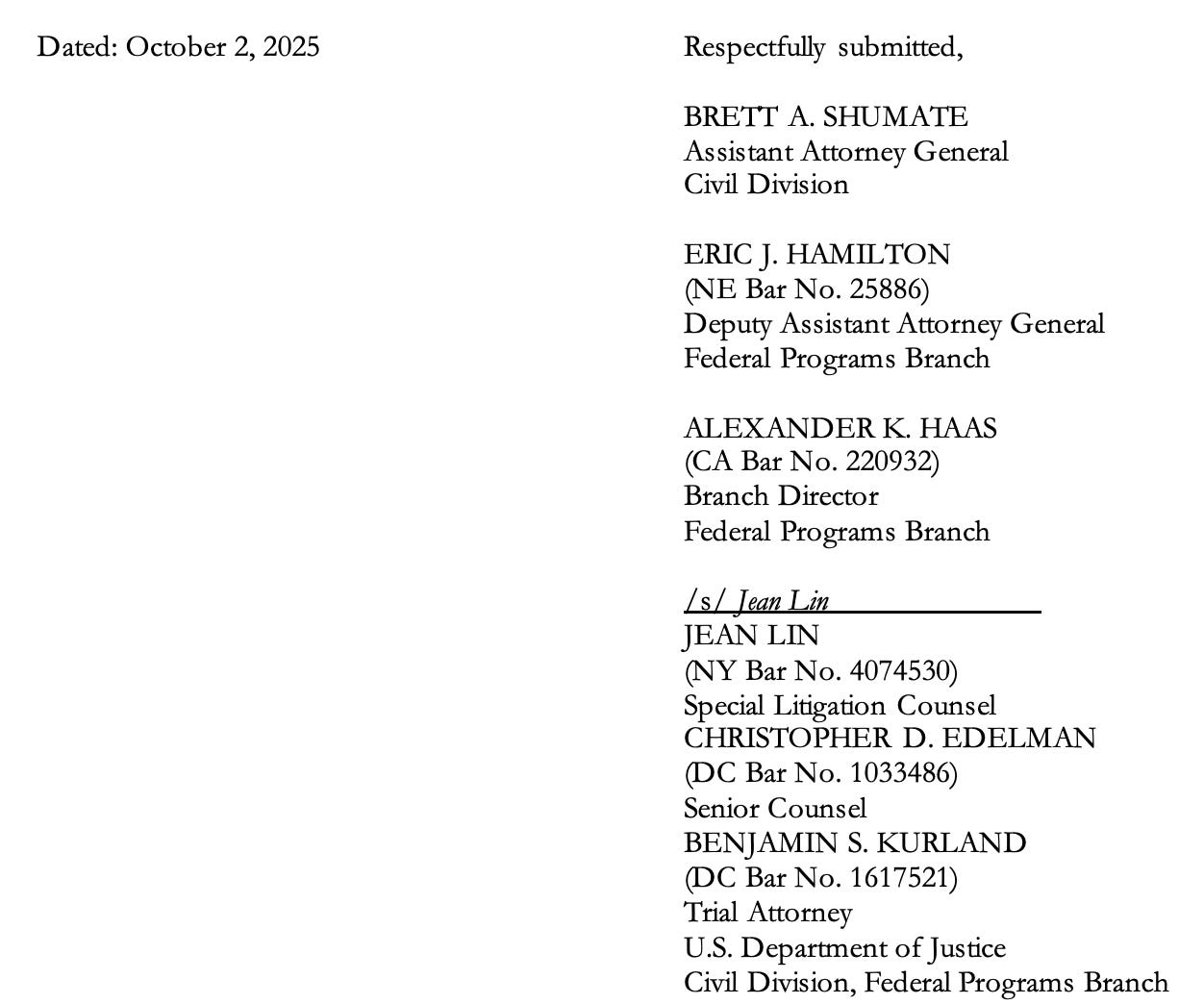
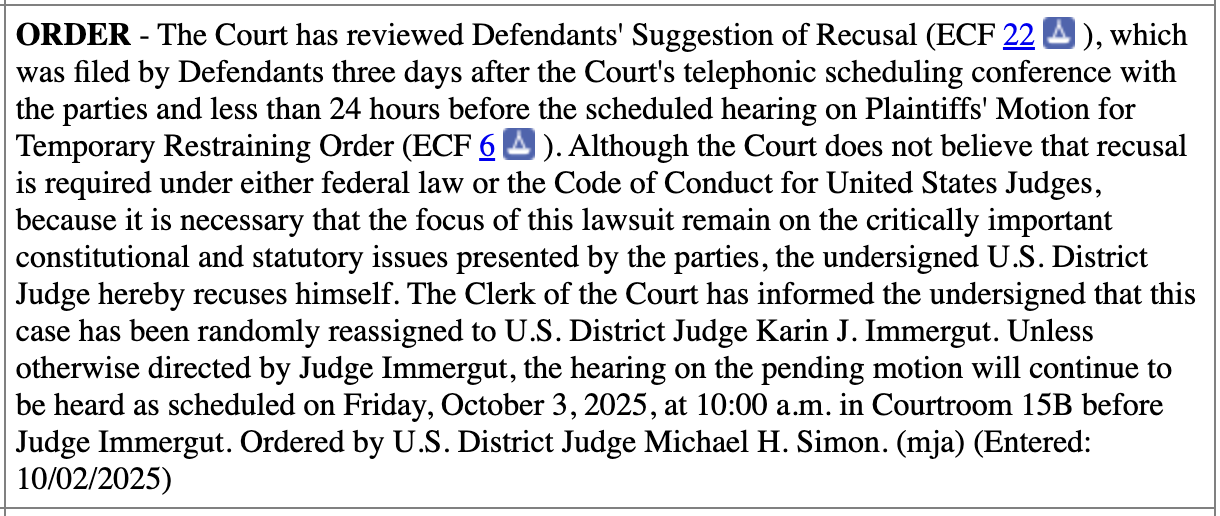
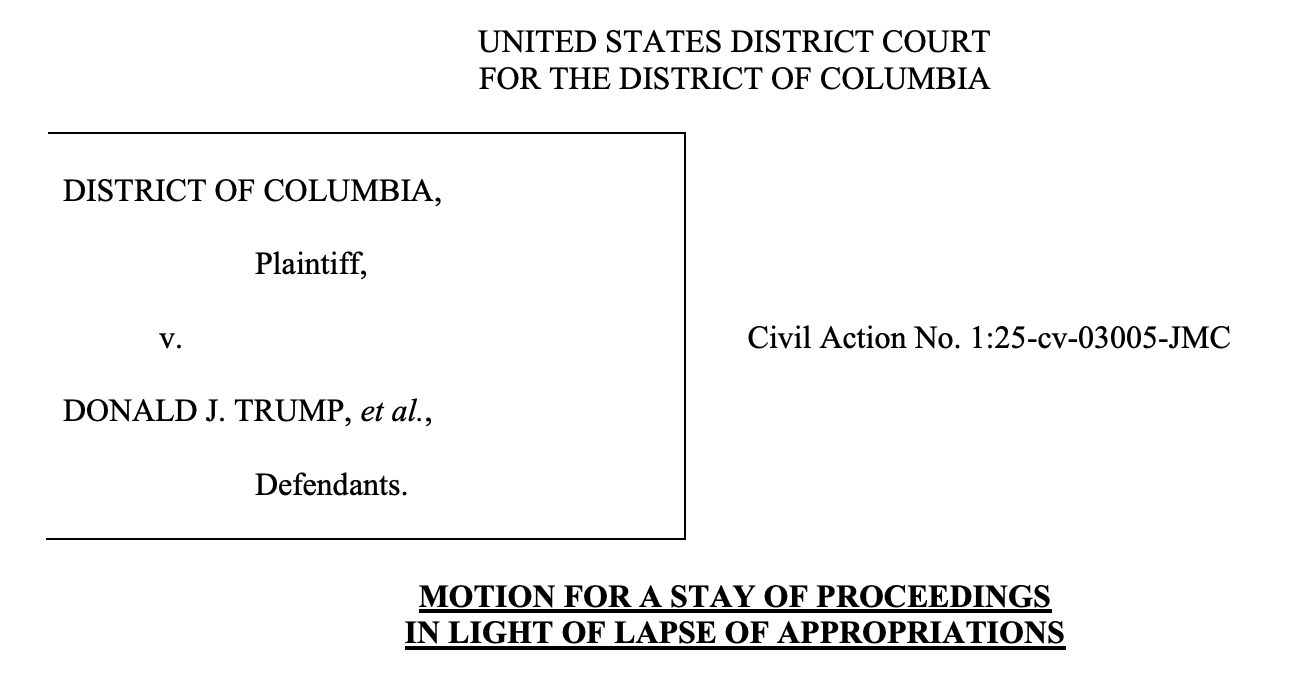
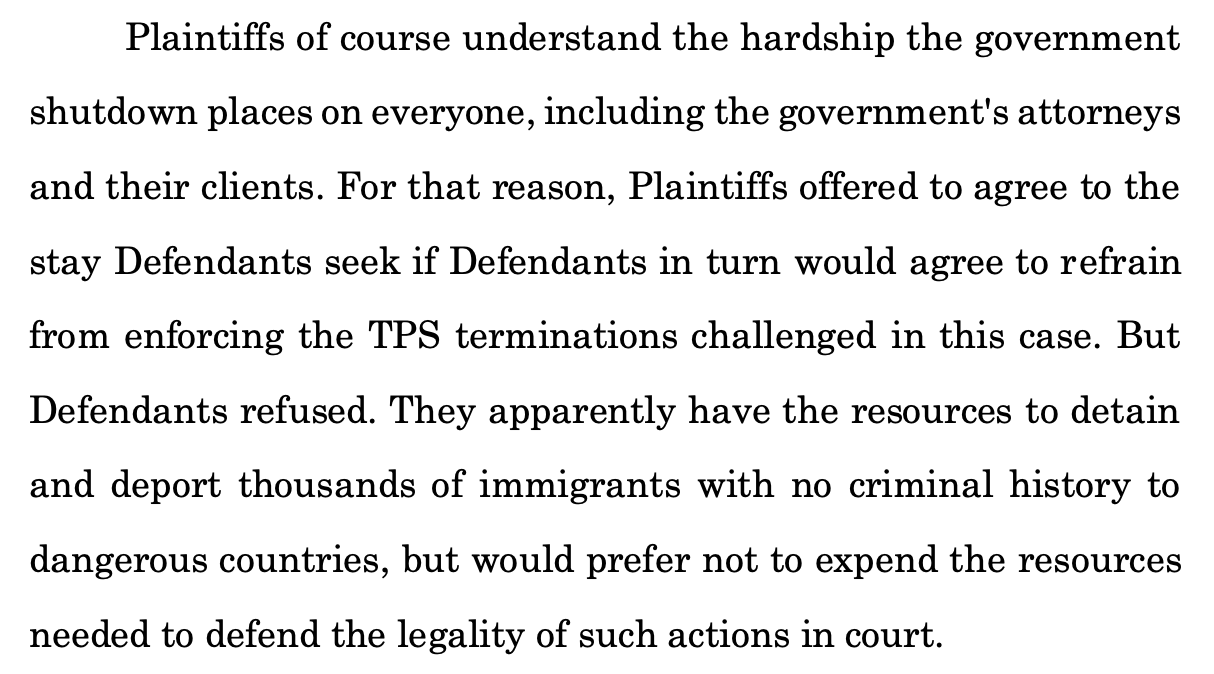
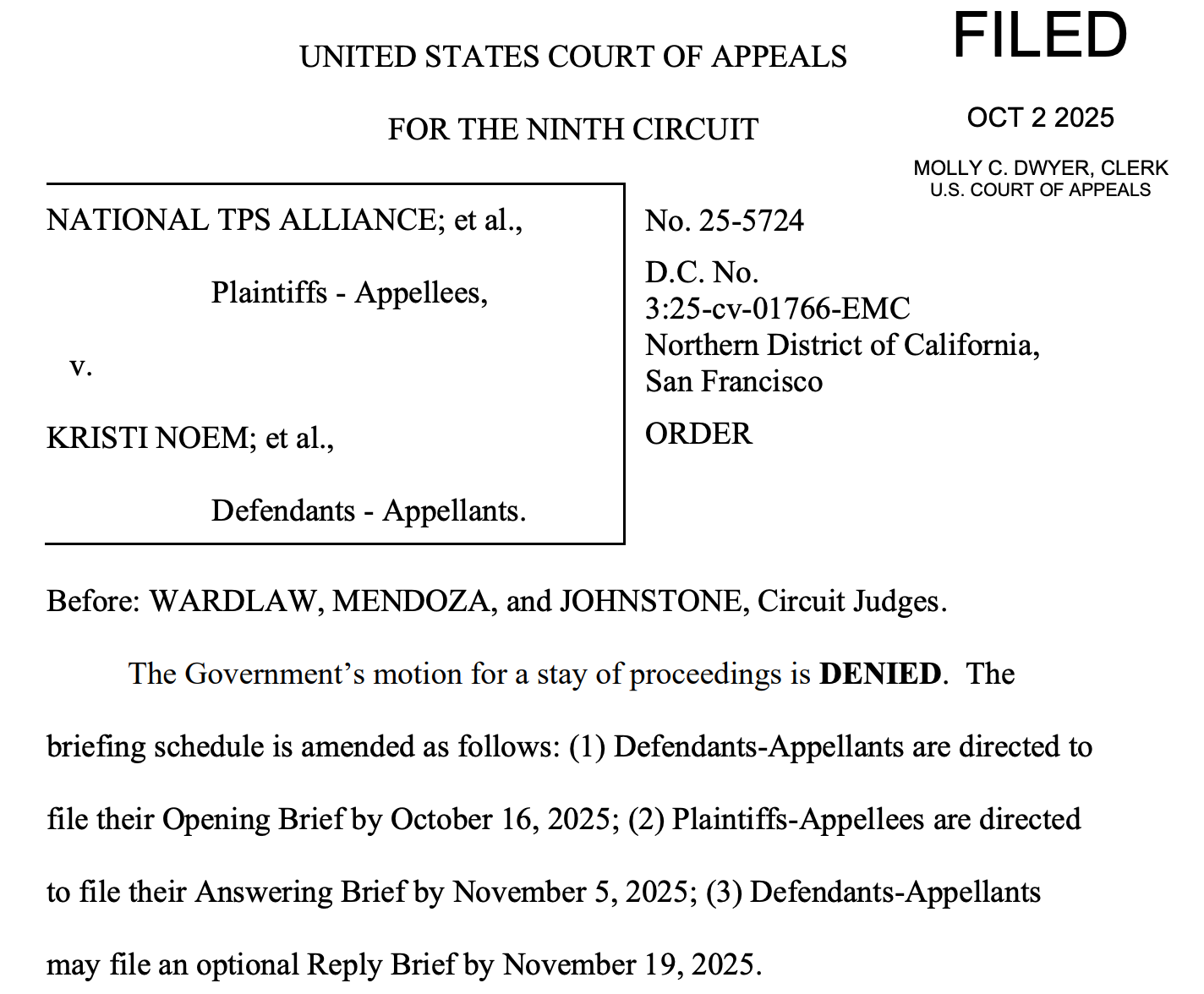
Oh my, if the DoJ spent as much effort upholding the law as figuring the angles …
Excellent work Chris. The corruptness of this regime has gone too far 😡